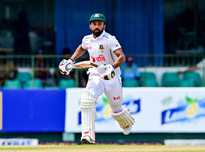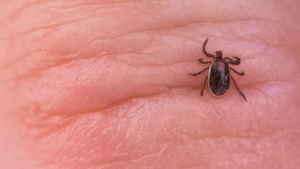Dengue fever, a viral infection transmitted by the Aedes aegypti mosquito, poses a significant public health challenge in India, accounting for a substantial portion of the estimated 100–400 million global infections. With the monsoon season exacerbating the spread, the imminent arrival of India's first dengue vaccine offers a beacon of hope. The Phase 3 trials are nearing completion, marking a crucial step toward widespread availability.

Dengue's severity ranges from mild to critical, posing a higher threat to individuals with weakened immune systems. The infection, spread by Aedes mosquitoes, triggers symptoms such as high fever, intense headaches, joint and muscle discomfort, and a potentially perilous decline in blood platelet levels. In severe instances, dengue can lead to hemorrhage, organ failure, and even fatality. Young children and the elderly population are particularly vulnerable.
Developing a dengue vaccine has been a complex scientific endeavor. The existence of four distinct dengue virus serotypes necessitates a vaccine capable of providing broad protection. While other nations have made attempts, the outcomes have been inconsistent, and their vaccines have not achieved widespread adoption.
The Serum Institute of India (SII) is at the forefront of developing India's first dengue vaccine, named "TetraVax-DV." This vaccine aims to confer protection against all four dengue virus types. Utilizing a non-live, weakened form of the virus, it primes the body's immune system to combat dengue without causing the illness itself.
Key features of the TetraVax-DV vaccine:
Vaccine approval hinges on successful completion of clinical trials:
Phase 3 trials are critical as they demonstrate the vaccine's ability to prevent dengue within the broader community.
Phase 3 trials for India’s dengue vaccine commenced in 2023 across more than 20 locations nationwide, encompassing both urban and rural settings. The study aims to enroll over 10,000 volunteers from diverse backgrounds, including children and adults. Current progress indicates that enrollment is nearly complete, with promising initial results.

Given India's high dengue burden, a safe and effective vaccine is paramount. The potential benefits include:
Beyond vaccination, preventive measures remain crucial. These include protection against mosquito bites (using repellents, wearing full-coverage clothing), ensuring proper drainage, and eliminating standing water sources to prevent mosquito breeding.
The Indian Council of Medical Research (ICMR) and Panacea Biotec
Newer articles
Older articles
 Vijay Officially Named TVK's Chief Minister Hopeful for Tamil Nadu's 2026 Election
Vijay Officially Named TVK's Chief Minister Hopeful for Tamil Nadu's 2026 Election
 RJ Mahvash Prioritizes Work Over Buzz, Addresses Link-Up Speculation
RJ Mahvash Prioritizes Work Over Buzz, Addresses Link-Up Speculation
 UNESCO's World Heritage Wonders: Unveiling 10 Iconic Sites, From Petra to the Pyramids
UNESCO's World Heritage Wonders: Unveiling 10 Iconic Sites, From Petra to the Pyramids
 JPG to PDF: A Comprehensive Guide for Graphic Designers & Professionals
JPG to PDF: A Comprehensive Guide for Graphic Designers & Professionals
 iQoo Z9 Turbo: Rumored Specs Emerge – Snapdragon 8s Gen 3, 6000mAh Battery Highlighted
iQoo Z9 Turbo: Rumored Specs Emerge – Snapdragon 8s Gen 3, 6000mAh Battery Highlighted
 Shadman Islam Defends Bangladesh Batters After Day 1 Struggles Against Sri Lanka
Shadman Islam Defends Bangladesh Batters After Day 1 Struggles Against Sri Lanka
 England's Bold Claim: Could They Have Chased Down 450 Against India?
England's Bold Claim: Could They Have Chased Down 450 Against India?
 5 Often-Missed Warning Signs of Bladder Cancer You Need to Know
5 Often-Missed Warning Signs of Bladder Cancer You Need to Know
 KL Rahul Puts Country First, Prioritizes England Tests Over Newborn Child
KL Rahul Puts Country First, Prioritizes England Tests Over Newborn Child
 Tick Bite Paralyzes Fitness Influencer: A Wake-Up Call for Outdoor Enthusiasts
Tick Bite Paralyzes Fitness Influencer: A Wake-Up Call for Outdoor Enthusiasts